
Harvard Business School’s Bill Sahlman: What I’ve Learned from Reading 10,000 Business Plans and Investing in Hundreds of Startups
Of the 10,000 business plans Bill Sahlman has read, only 3 companies met their plan. Find out what it takes to succeed. Entrepreneurs have to be really good at running tests and execution trumps idea. Jeff Bezos is the most effective experimentalist in history. Bill Gates did not invent word processing, the spreadsheet, or presentation graphics; rather he took ideas and out executed everyone else.
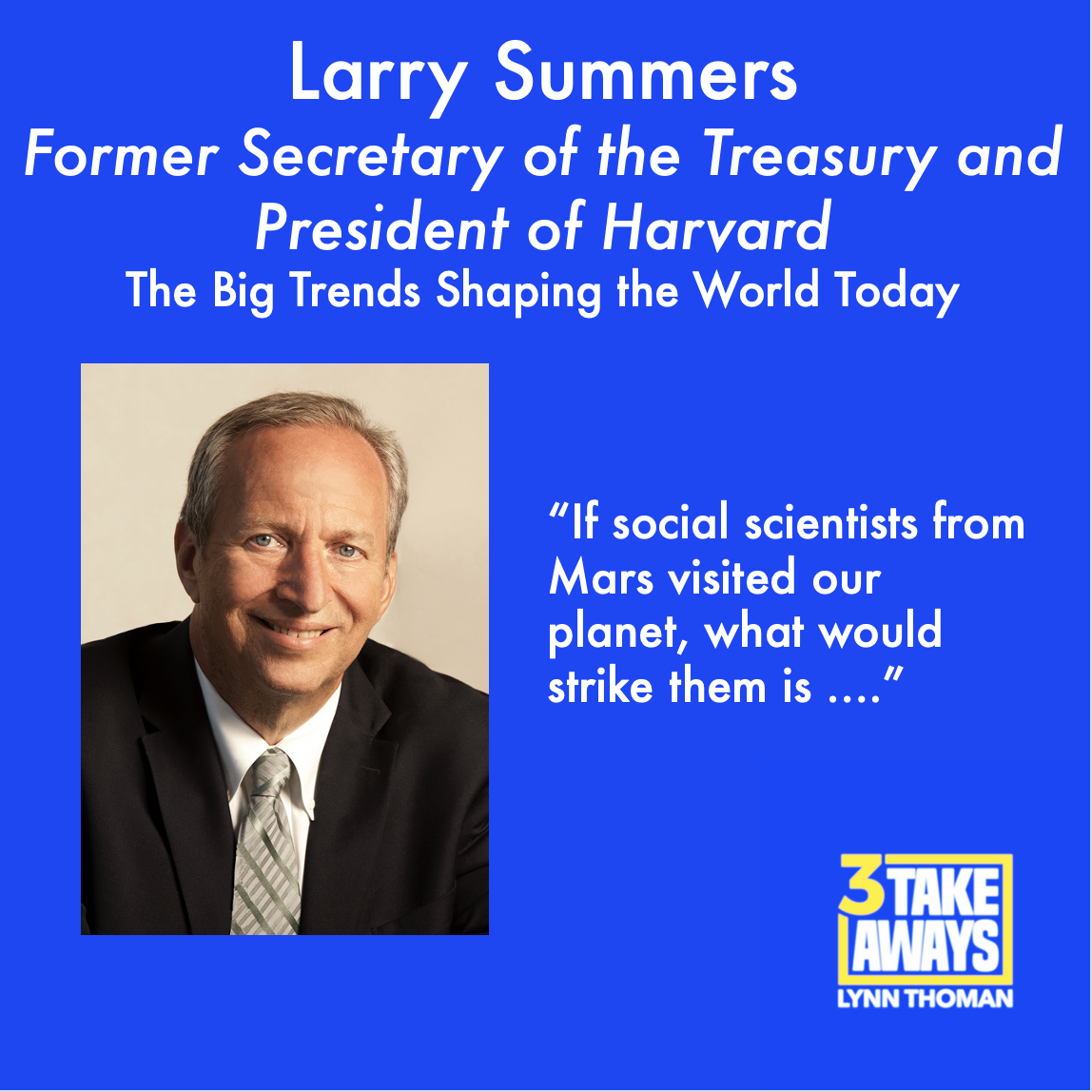
Former Secretary of the Treasury and President of Harvard, Larry Summers: The Big Trends Shaping the World Today
Former Secretary of the Treasury and President of Harvard Larry Summers talks about the defining trends of the 21st century, including how we are going to achieve collective solutions, the shift in the center of gravity of the world’s economy and culture to the east, the upcoming transformation in education, the hard choices facing the leading universities, and the exponential growth in what information technology will be capable of.
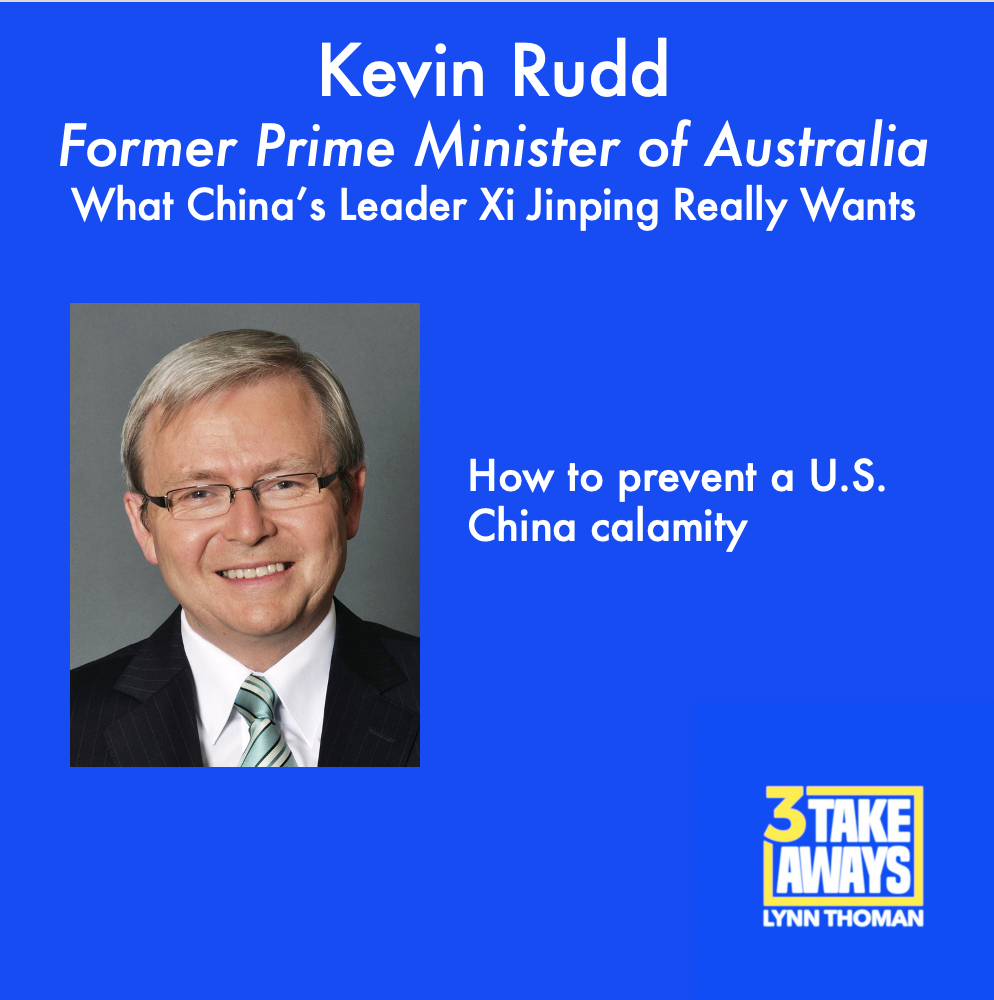
Former Prime Minister of Australia, Kevin Rudd: What China’s Leader Xi Jinping Really Wants
Former Prime Minister of Australia Kevin Rudd, who has known China’s leader Xi Jinping for decades, reveals how Xi Jinping sees China and the world, and what he really wants. Find out why America needs its allies more than ever before and what the U.S. and its allies can do.
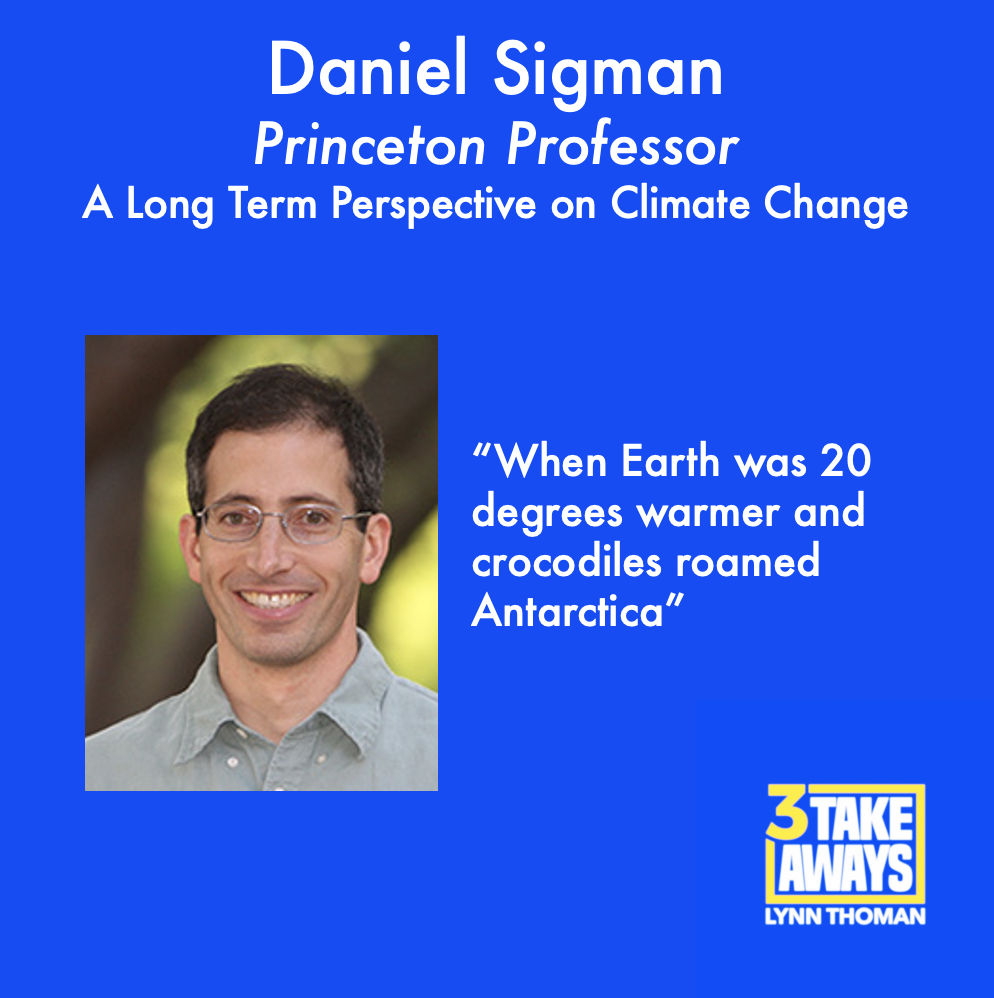
A Long Term Perspective on Climate Change - When Earth Was 20 Degrees Warmer and Crocodiles Roamed Antarctica with Princeton’s Danny Sigman
Did you know that Antarctica used to be ice-free and earth used to be 20 degrees warmer than it is now? Find out why climate change then wasn’t a problem, and why it is now with Princeton University’s Daniel Sigman. Also find out how climate change caused horses to grow from the size of large house cats to their size today.
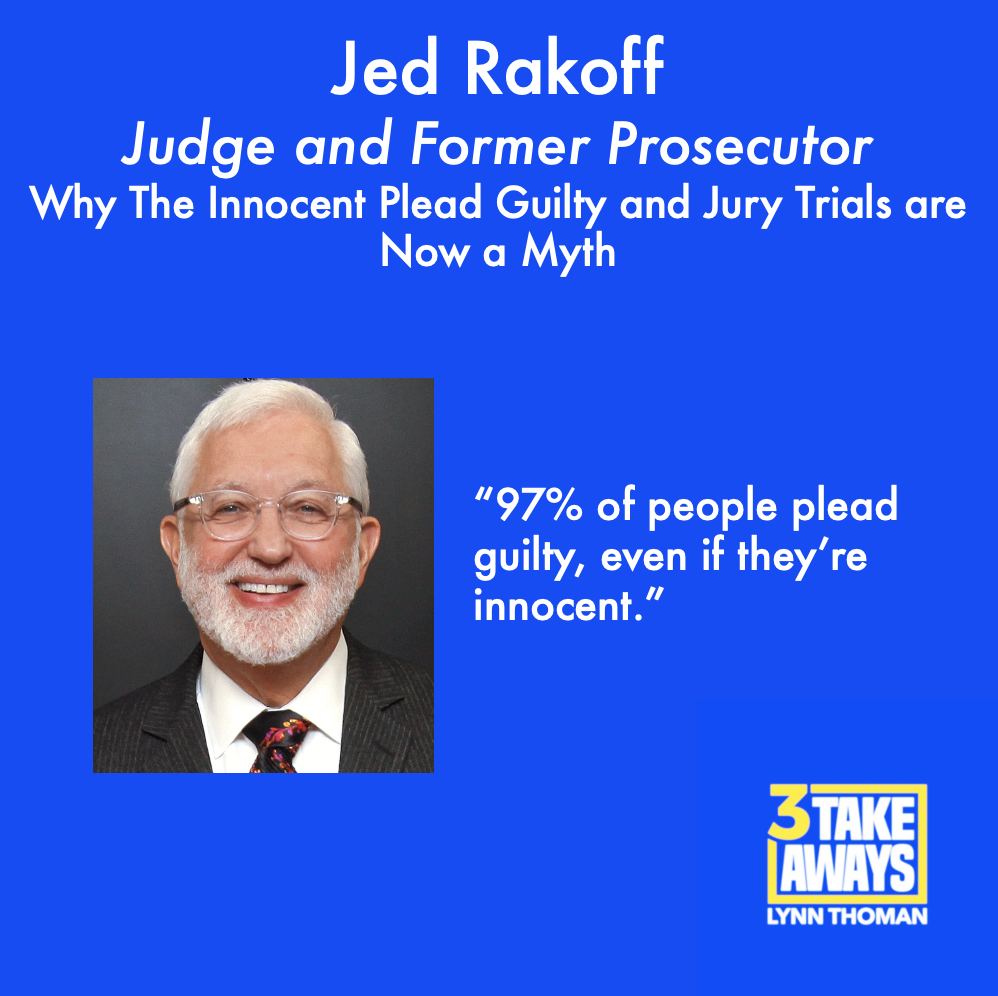
Why The Innocent Plead Guilty and Jury Trials Are Now a Myth with Judge and Former Prosecutor Jed Rakoff
97% of people plead guilty, they plea bargain, even if they’re innocent. No one can take the risk of going to trial, even innocent people, because if they're convicted they'll face huge amounts of time in prison. The possibility of being acquitted by a jury is almost gone. Find out why the innocent plead guilty and why the innocent no longer have trials from Judge Jed Rakoff, who’s seen it from all sides as a judge, former prosecutor and former criminal defense attorney.

Working for Jeff Bezos and the Secrets of Amazon’s Success
With nearly 30 years of combined Amazon experience, former Amazon Vice Presidents Colin Bryar and Bill Carr reveal the proven way Amazon innovates and scales businesses. Colin spent all day every day with Jeff Bezos for 2 years as his technical advisor. Bill led the launch and growth of the Kindle, Amazon Music, and Prime Video. Find out how Amazon’s success is due to a well-defined set of principles and practices which they reveal here and illustrate with stories. Find out also what Jeff Bezos is really like and why his siblings hated to go to movies with him.

Nobel Laureate, Daniel Kahneman: His Latest Findings on "Noise" and Flaws in Human Judgement
Learn about Nobel Laureate Daniel Kahneman’s latest findings on “noise” and how there is more noise and flaws in human judgement than you think — Find out why you should see a doctor in the morning and go to court after lunch.

Tom Friedman: On the World Getting Flatter and More Fragile, and Elephants Flying
Tom Friedman, author, New York Times columnist, and winner of three Pulitzer Prizes, talks about the world getting flatter and more fragile; abolishing recessions and interrupting the natural laws of capitalism; why the U.S. needs a healthy Republican Party; and how the world AC (After Corona) will be very different from the world BC (Before Corona).

How Right and Wrong Change with Technology with Juan Enriquez
We all think we know what’s right and wrong but we don’t because right/wrong changes over time. Our great grandchildren might be shocked by people eating meat, and the risks of pregnancy, childbirth and unedited genes. Find out which things we're doing now that will be viewed as wrong, and learn about the almost inconceivable things that will become “right" because of new technology. Will genetic engineering of humans for space travel become acceptable? Bigger brains? More compact bodies? Different species of humans to increase our odds of survival?

Princeton Psychology Professor, Eldar Shafir: Why Having Too Little Makes People Perform Worse and Become More Impatient, Impulsive and Careless
Learn how scarcity of anything — money, food or social connections — affects our daily lives and leads us astray. Scarcity reduces both intelligence and control. Having too little preoccupies and taxes the mind, making life much harder. "Even smiling and being pleasant is hard when your mind is taxed. The employee snaps at rude customers ... The parent snaps at the child ... The server rings up the wrong item.” Learn about the latest cutting edge behavioral science to find out how the poor can escape the scarcity trap and how we can all manage scarcity for better satisfaction and success.

Harvard’s Chair of Astronomy, Avi Loeb: Why We Are Not Alone and Are Very Common Like Ants On A Sidewalk
Find out why Harvard’s Chair of Astronomy Avi Loeb says we are not alone in the universe and that there are more intelligent and sophisticated civilizations than ours. Learn about the evidence that we aren't the “smartest cookie in the jar.” Find out when we were visited by another civilization and how we can create life on other planets by launching what he calls "Noah's spaceship.”
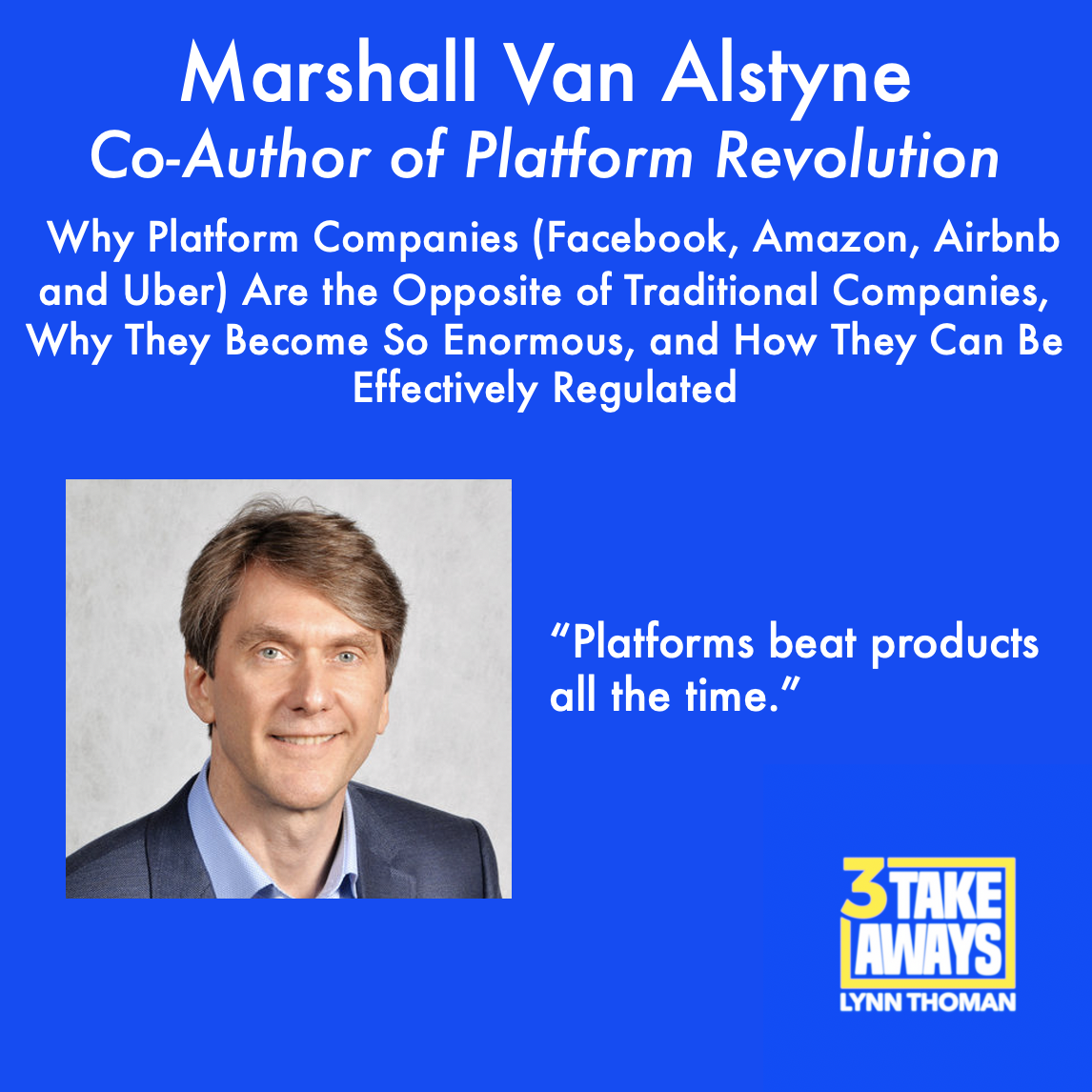
Marshall Van Alstyne: Why Platform Companies (Facebook, Amazon, Airbnb and Uber) Are the Opposite of Traditional Companies, Why They Become So Enormous, and How They Can Be Regulated
Find out why platform companies dominate traditional businesses and why 7 of the 10 largest companies in the world are platform companies. Learn how they outcompete traditional companies while employing just a tiny fraction of the number of people, how they are completely different from companies of the past, and why platforms beat products all the time.

Former Foreign Minister of Mexico, Jorge Castañeda: America Through Foreign Eyes
Jorge Castañeda, former foreign minister of Mexico, provides a unique perspective on America and the world, including American interventions abroad, American exceptionalism and how it has changed over time, and how Latino immigrants are changing the US. Learn how transforming inventions into consumable goods continues to be an almost uniquely American talent and capability.

Harvard Professor, Robert Waldinger: On What the Good Life Actually Looks Like Based on Harvard’s 75 Year Study
Find out what the good life actually looks like based on Harvard's 75 year study of over 700 men from when they were teenagers through old age, with director of the study, Robert Waldinger. Learn the single most important thing that keeps us healthy and happy as we go through life and predicts who will stay healthy longer and live longer.

CEO of Marriott, Arne Sorenson: On the Future of Travel and, as a CEO of the Year, How To Be A Great Leader
Find out from CEO of Marriott Arne Sorenson, head of the world’s largest hotel chain, and one of the world’s best leaders (as a “CEO of the Year” and leader of one of the most admired companies), what he thinks about the future of travel, work, and cities and what it takes to be a great leader.

Former Under Secretary of State, Nicholas Burns: On American Foreign Policy Under President Biden and What It Can Accomplish
Find out what President Biden can accomplish internationally and what an activist US policy looks like from Ambassador Nicholas Burns, former Under Secretary of State, Ambassador to NATO and Special Assistant to the President.
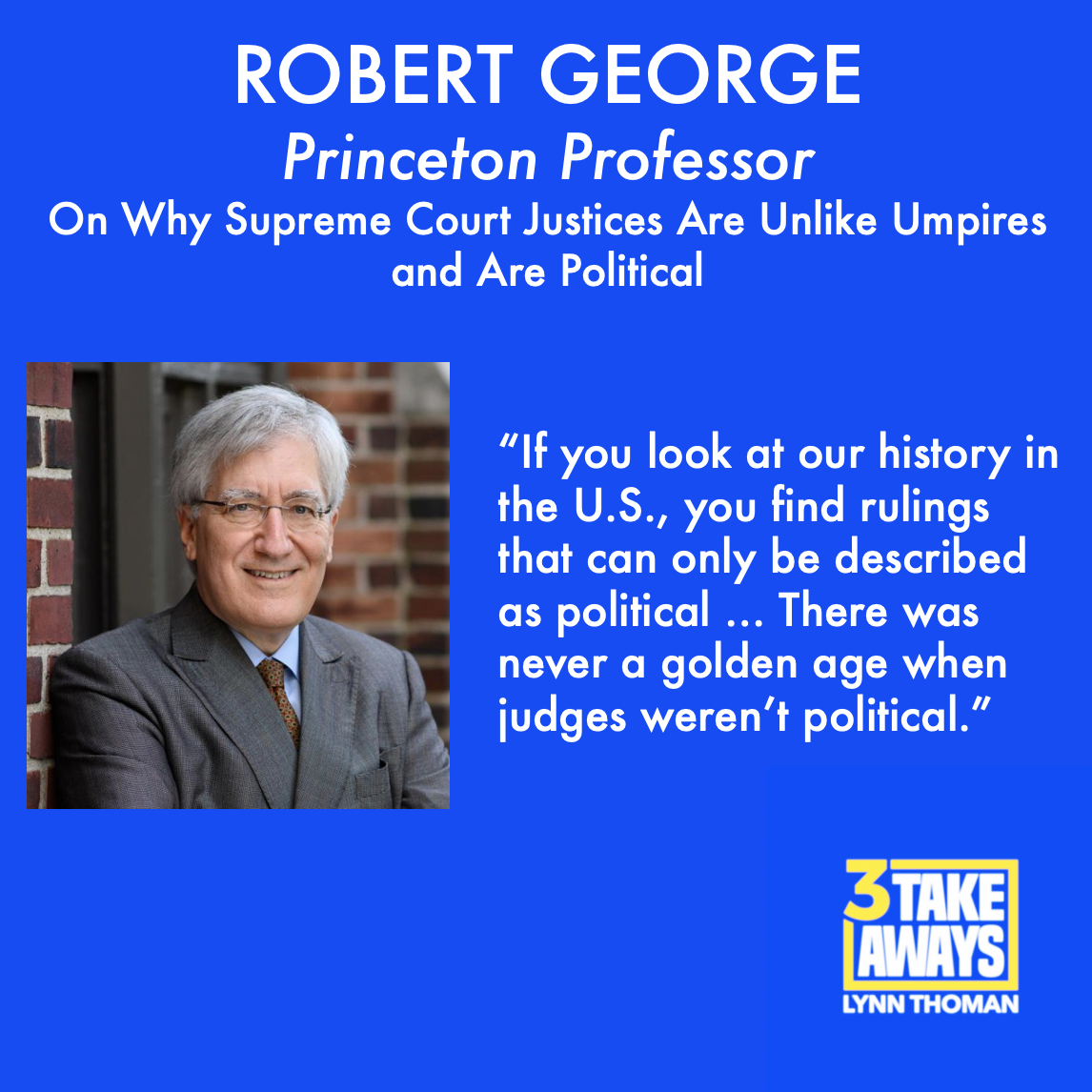
Princeton Professor, Robert George: On Why Supreme Court Justices Are Unlike Umpires and Are Political
Find out how Democratic and Republican judges’ decisions differ and how judges’ decisions can be predicted based on whether they are Democrats or Republicans.
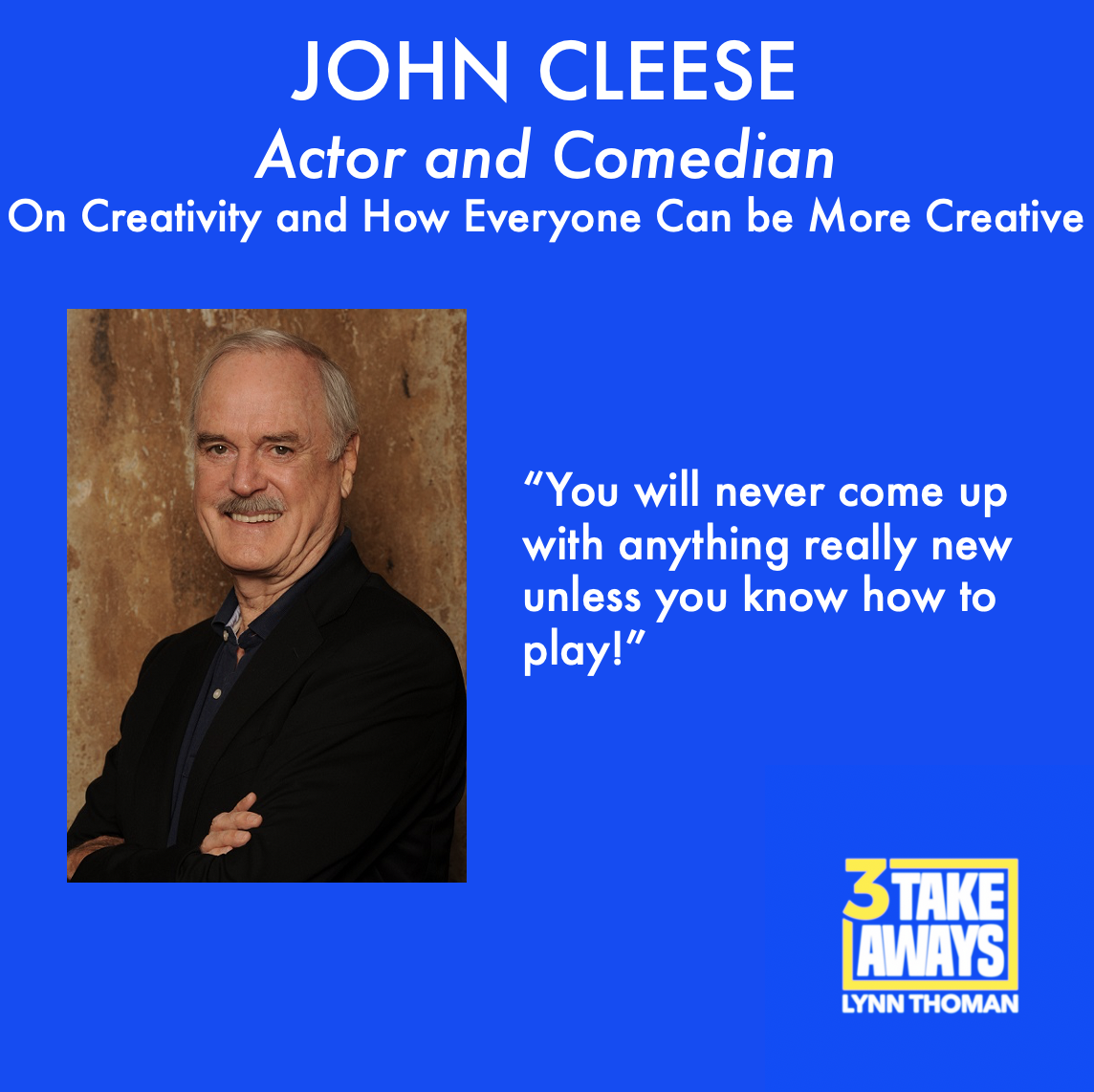
John Cleese of Monty Python: On Creativity and How Everyone Can Be More Creative
John Cleese opens up about how he gets his best ideas and how everyone can be more creative. He also provides insights on comedy and humor.

Head of Columbia University’s Creative Machines Lab, Hod Lipson: On the Future of Artificial Intelligence
We are at an inflection point in artificial intelligence today. Find out what the next 3 waves of artificial intelligence will bring — including creativity and consciousness.

President Obama’s Chief Pollster, Joel Benenson: On What He’s Watching Most Closely Now and What the Path Forward is For Republicans and Democrats
Find out the 3 keys to success for campaigns; who has the best polls (Fox News); what the biggest shifts in the electorate are; what he's watching most closely now; and the path forward for both parties.
